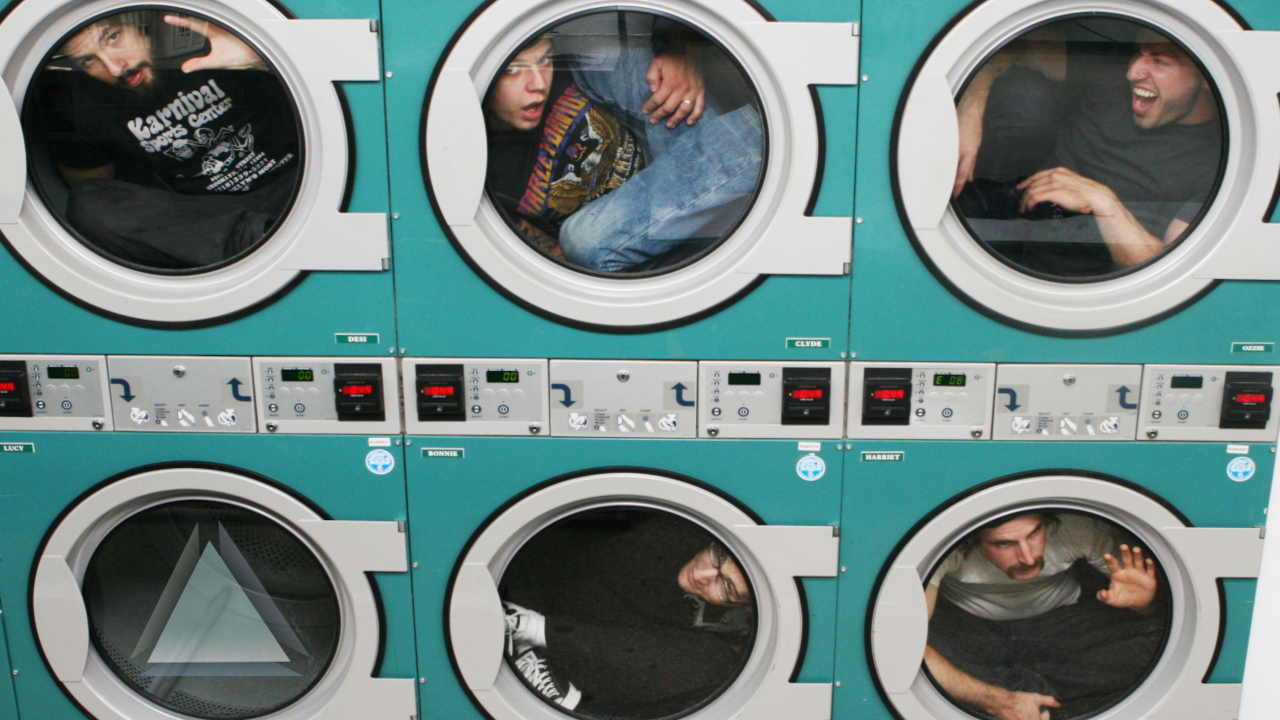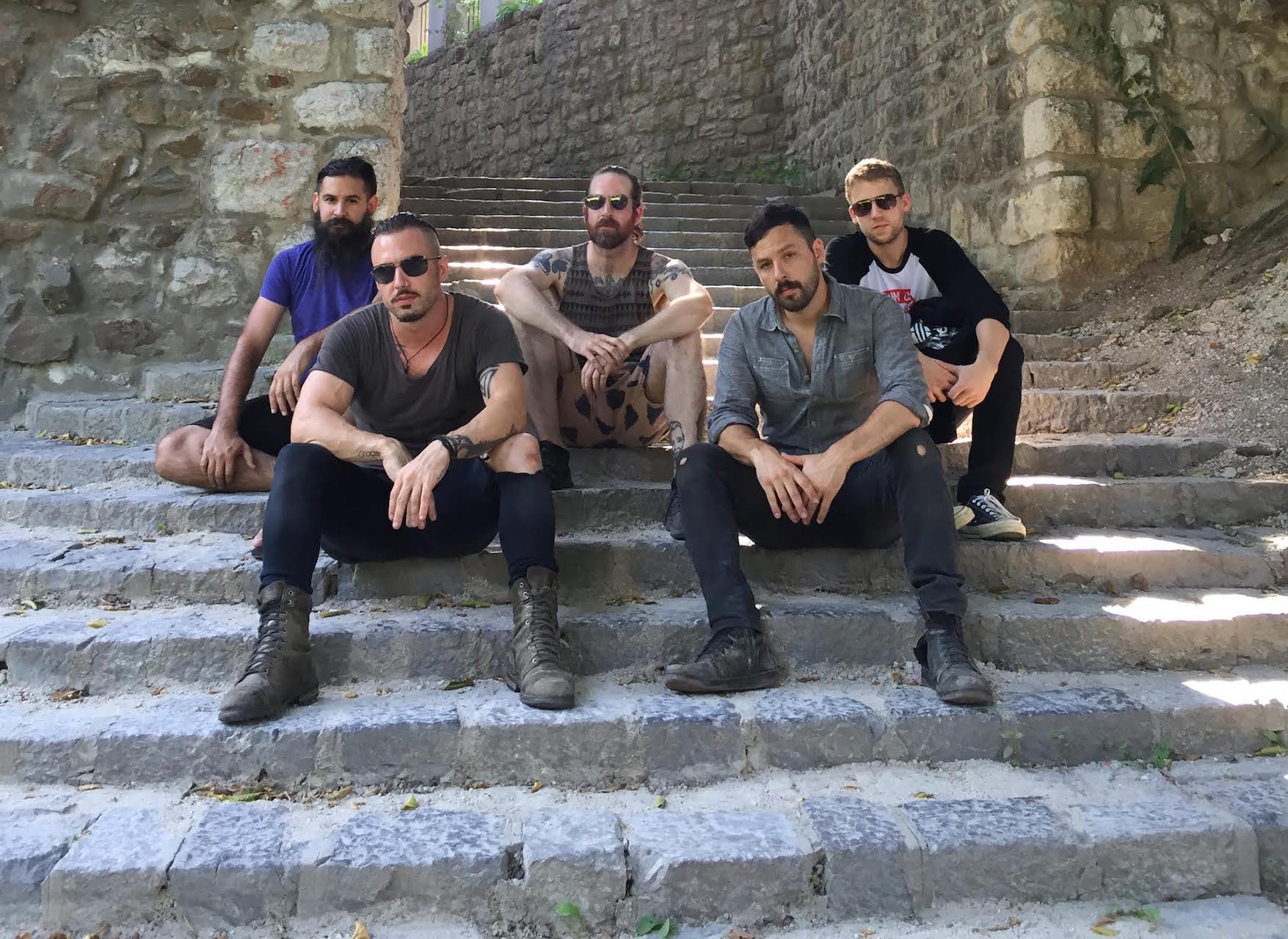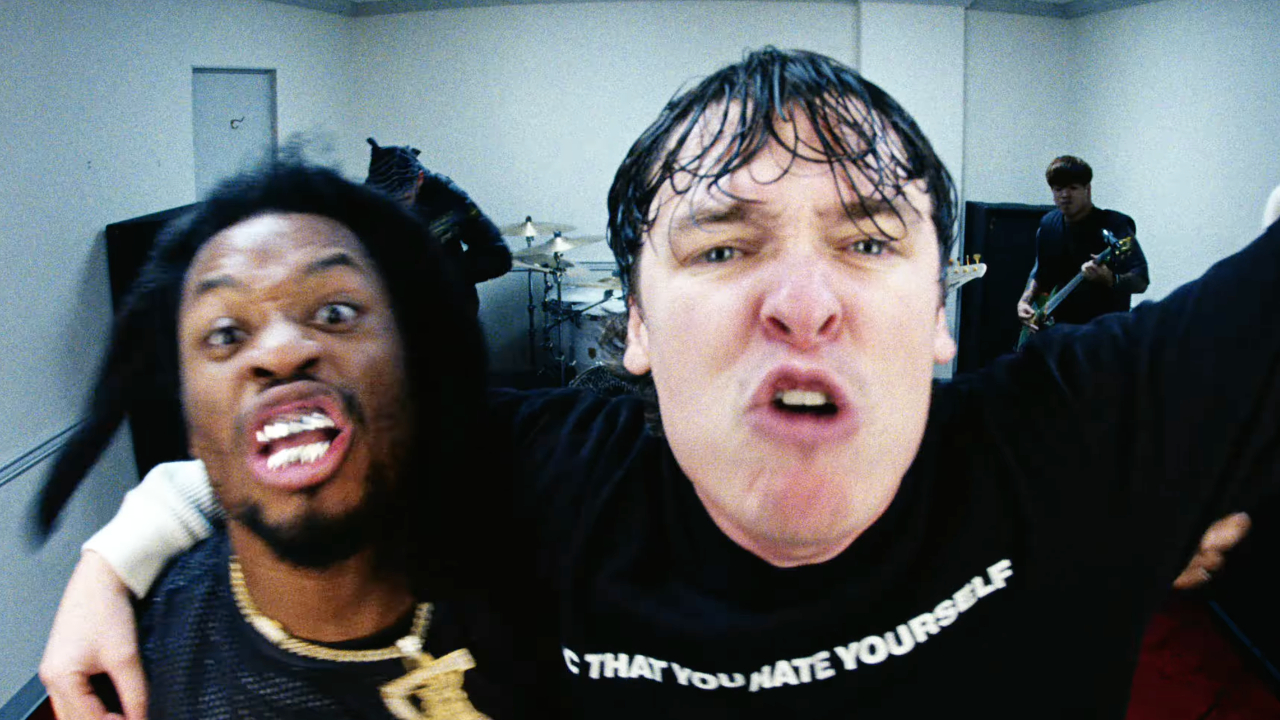The 15 songs that defined Dillinger Escape Plan
In 2016 we asked Greg Puciato to pick the ultimate Dillinger Escape Plan playlist

Select the newsletters you’d like to receive. Then, add your email to sign up.
You are now subscribed
Your newsletter sign-up was successful
Want to add more newsletters?

Every Friday
Louder
Louder’s weekly newsletter is jam-packed with the team’s personal highlights from the last seven days, including features, breaking news, reviews and tons of juicy exclusives from the world of alternative music.

Every Friday
Classic Rock
The Classic Rock newsletter is an essential read for the discerning rock fan. Every week we bring you the news, reviews and the very best features and interviews from our extensive archive. Written by rock fans for rock fans.

Every Friday
Metal Hammer
For the last four decades Metal Hammer has been the world’s greatest metal magazine. Created by metalheads for metalheads, ‘Hammer takes you behind the scenes, closer to the action, and nearer to the bands that you love the most.

Every Friday
Prog
The Prog newsletter brings you the very best of Prog Magazine and our website, every Friday. We'll deliver you the very latest news from the Prog universe, informative features and archive material from Prog’s impressive vault.
The Dillinger Escape Plan set the bar for anarchic, all-out sonic bedlam at the turn of the millennium. Ostensibly metalcore but with touch-ins at hardcore, prog and just about everything in between, their discography stands as one of the most iconoclastic in metal, the band choosing to go out on their own terms in 2017.
Twelve months before their demise, we asked Greg Puciato - frontman of the band from 2001 - to pick out the 15 songs that best defined a band that so often avoided categorisation.

15. The Mullet Burder (Under The Running Board, 1998)
“This was the first song on an EP, which in the underground scene at the time was a really unexpected shot of what-the-fuck. This song was my introduction to the band, three years before I joined. It was given to me by a drummer friend of mine who I played in a band with, who was an encyclopaedia of everything happening underground.
I was still living in my teenage home in Baltimore at the time. I remember listening to it for the first time on a Sony Discman and really sensing that there was no limit to where these kids could go. I couldn’t even understand what the drummer, Chris Pennie, was doing. He just seemed inhuman. I couldn’t believe they were only a few years older than me.”
14. 43% Burnt (Calculating Infinity, 1999)
“I bought this the day it came out at Reptilian Records in Baltimore. The open and close of 43% Burnt was an instant hook. Apparently, it was a last-minute add-on. It’s still a defining part of our set every time. In between the prior EP and this, the original bass player Adam Doll was paralysed from the arms down in a car accident, then Liam [Wilson] joined. It would be the first of many setbacks, tragedies, injuries, and member changes. The riff is a sound of perseverance.”
13. When Good Dogs Do Bad Things (Irony Is A Dead Scene, 2002)
“A lot happened in between Calculating Infinity and this EP. Dillinger had caught the ear of Mike Patton, and toured opening for Mr. Bungle. They parted ways with their singer Dimitri [Minakakis] in 2001 and I joined shortly after. I used to drive or take a bus or train to Liam [Wilson, bass] in Philadelphia, and then he would drive to Brian [Benoit, then guitarist] in New Jersey, and then Brian would finish the drive to the practice spot near Chris [Pennie, drummer] and Ben.
In late summer 2001, we were at Liam’s place in Philly and he was playing the instrumental of this song. He was like, ‘We didn’t know we were gonna find a singer so fast, so we kinda have Mike Patton doing this, if you can believe that. Are you cool with that?’ Obviously because of who it was, I couldn’t be mad. A lot of people asked back then if it felt intimidating to have to come after that, but I felt fortunate that my first release would be a direct comparison with one of the best. I knew it would make me give my best, to be on the highest proving ground.
Sign up below to get the latest from Metal Hammer, plus exclusive special offers, direct to your inbox!
This EP did a lot for us as far as introducing us to wider audiences and having people look at us more seriously. At my first show, in September 2001, we opened with this instrumentally before going into The Running Board. We played it for months before Mike ever recorded his real vocals.”
12. Damaged I/Damaged II (Black On Black, 2002)
“We did this song for a Black Flag comp. We recorded it in Ben’s bedroom in late 2001, and it was the first recording that we were all together on. It was my first recording that came out. It was really cool that we got asked to do this Black Flag thing right after I joined because, obviously, so much of my early scenario was very similar to Henry Rollins and Black Flag.
Hardly anyone ever heard it, so whenever someone brings it up, I’m really excited that they know about it. If they really know about it, they know that before it was a full comp, it was a series of seven-inch records. Ours was us on one side and American Nightmare on the other. This wasn’t something that was too important for us above ground; it didn’t really reach too many people, but I think internally there was sort of a sense that things were gonna be all good, when we heard how it came out.”

11. Baby's First Coffin (Miss Machine, 2004)
“This was the first track we released from Miss Machine and it was the first time that anyone had ever heard singing on a Dillinger record – except for the EP we did with Mike Patton, which was more of a standalone anomaly. This song was such a huge, sort of bracing-for-impact moment for us. We felt like, ‘If people are into this, then we can do whatever we want forever.’ We knew we had to create freedom for ourselves and not repeat Calculating Infinity.
Our band was seen as just sheer violence and aggression; the previous couple years of live shows had been really over the top. We were just a hurricane of destruction at that point, so the idea of melody in songs was… we had no idea how people would react. It initially came out on the Underworld soundtrack, which was neat until we found out it was actually wasn’t used in the movie.”
10. Panasonic Youth (Miss Machine, 2004)
“This is the first song on Miss Machine but it was the last song we wrote. We’d done the record but we just thought we needed another song and it just came about at the last minute. I mean, like the last fucking couple of weeks before we started recording.
It was the first song that we had written so quickly and it ended up being, along with Sunshine The Werewolf, the defining song of the record. It’s still a song that we play nearly every set. It’s still the best marriage of punk energy and technical playing that I think we’ve achieved. I can’t even imagine that we were considering that the record finished without that song”.
9. Sunshine The Werewolf (Miss Machine, 2004)
“This song became the next 43% Burnt for us, and again, it contained a part that was a really late add-on which would become synonymous with our band. There was originally singing over the entire middle part of that song where it slows down. I ended up using the original melody almost note-for-note in the chorus of Nothing’s Funny on One Of Us Is The Killer. But anyhow, I didn’t think it was powerful enough and we needed some sort of statement there.
The gap in between the clean and the distorted… the song was done and there was nothing there. That part was blank. The ‘destroyer’ part was a last-minute idea that felt in theory almost ridiculous. I mean it’s absurd to really think about. Just screaming that part in the gap right before it crashes in. On paper, it’s almost silly. When we heard it, it sounded massive. Again, there’s something just so unifying and defiant and resilient about it. It’s become such a high point at every show, like a rallying point for the band and our fans.
That and the end of the song, it gives me goosebumps to think about. We would play this live before we recorded it, and this was way before YouTube, so people would bootleg the audio from shows and post it on message boards. I knew the song was going to be a big one for us when we played a show in New Jersey, because these two kids – Scott and Mike – knew the lyrics to the end of the song and it wasn’t even out yet.”
8. Unretrofied (Miss Machine, 2004)
“It’s not a song we played many times live, but Unretrofied was important for us – it was really melodic to the extreme. If we hadn’t done that song I don’t think we would have been able to have the confidence to do Black Bubblegum and stuff like that years later. It was a big stepping stone for us as far as confidence without aggression goes.”
- The Dillinger Escape Plan: The Story Behind Jim Fear
- Meet Giraffe Tongue Orchestra, probably 2016's best supergroup
- The Black Queen live review – London, Jazz Cafe
- The Dillinger Escape Plan: The Confessions Of Greg Puciato
7. Lurch (Ire Works, 2007)
“This was the song we were using to audition drummers when Chris Pennie left, because it was the most difficult song on the record to play drum-wise. We sent [the song] to all these drummers and they sent back these really hack versions of it. I won’t name any names, but there were some drummers who are really high profile who sent us back versions of Lurch that weren’t even fucking close.
We really started to believe that we were never going to be able to be a band without Chris Pennie because he was such a phenom. We thought he was an alien, and then I got a phone call from Gil Sharone. It was two in the morning my time, because I lived on the East Coast at that point and I was like ‘Who is this California number calling me?’ and I answered it and it was Gil.
He said, ‘I got your number from Chris Hornbrook [Poison The Well at the time, currently Big Black Delta] and I can play this Lurch song – I heard it this morning’. And I just said, ‘Well, let me know when you think you can send something in’ and he said ‘I’m just going to put you on speakerphone, sit down at the drums and play it. Right now.’ He put the phone down and just fucking blazed through it. He just murdered it. So I was like ‘Hey, man, can you hang on a second?’ and I put him on hold and called Ben on three-way and got Gil to play it again – and that was it.
We went to California to record Ire Works and we’d all never even met Gil. Ben had met him in NYC prior or something – but for literally one night. We got to California and we went to the studio and he showed up late, but with undeniable confidence and charm. We were crossing our fingers that Lurch wasn’t a fluke and he could actually finish writing the record with us because we’d only heard him play that song through a fucking speakerphone.
That was a pivotal thing because it was such a huge moment of relief that there was going to be life after Chris Pennie. It might seem like a long time ago now, but back then it was this immense hurdle to overcome. Obviously now we’ve had Billy for a few records – longer than any drummer we’ve had – and if Chris was like the regulator Terminator, then Billy’s the liquid Terminator, the newer model. But back then, we didn’t think anybody like that existed.”
6. Sick On Sunday (Ire Works, 2007)
“I feel like this is another first for us. It was more of a glitchy, electronic thing, and then the end of it has what’s basically R&B singing over the top. I remember when [producer] Steve Evetts was mixing the record. I’d wanted to do this R&B singing part over the end of Sick On Sunday the whole time but I didn’t do it. I just thought, ‘This is just too far, man. I can’t do soft R&B style singing on a damn Dillinger record’. I asked if he’d mixed the song and he said, ‘No, but I’ll probably start tonight’. I said, ‘I’m going to swing by the studio and I’m going to sing this thing over the back of it. If it’s totally lame, or just stylistically really too far, please let me know’. And he thought it was great.
We did it really fast, maybe 15 minutes of takes. He said, ‘Why didn’t you do this before?!’. This, in the history of me trusting my instincts, was one of a small handful of times where I nearly didn’t – but I’m so glad I did. There’s a direct correlation between the end of that song and The Black Queen record [Fever Daydream] – that was the beginning of me feeling good about singing in that style. Once I realised how much I liked it when I listened back, it was the seed of a full album’s worth of stuff like that. I grew up listening to a lot of urban music and R&B just because of where I was from. It grew in parallel with things like rock and metal and hardcore and what have you, but that was the first time it started really showing up in my output, besides little singing inflections here and there.”
- 1
- 2
Current page: The 15 songs that defined The Dillinger Escape Plan (#15 - 5)
Next Page The 15 songs that defined The Dillinger Escape Plan (#5 - 1)Louder is the ultimate resource for alternative music coverage and the home of iconic rock brands Classic Rock, Metal Hammer and Prog. With a combined reach of over five million followers across social media, we're the largest and most influential alternative music website in the world.

